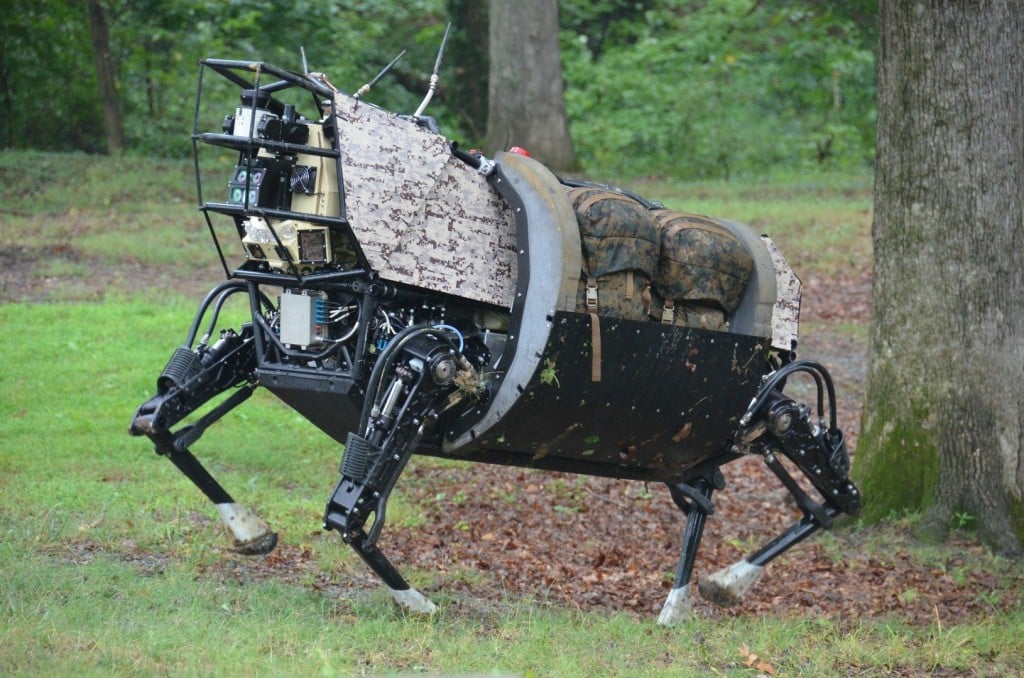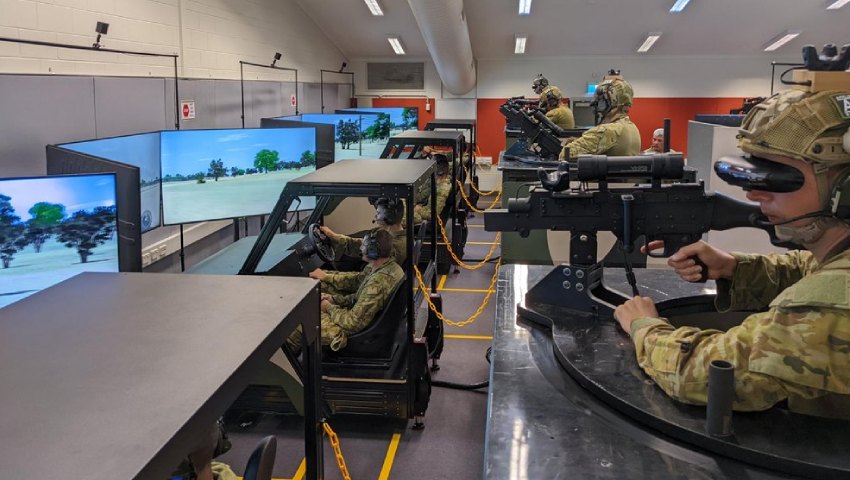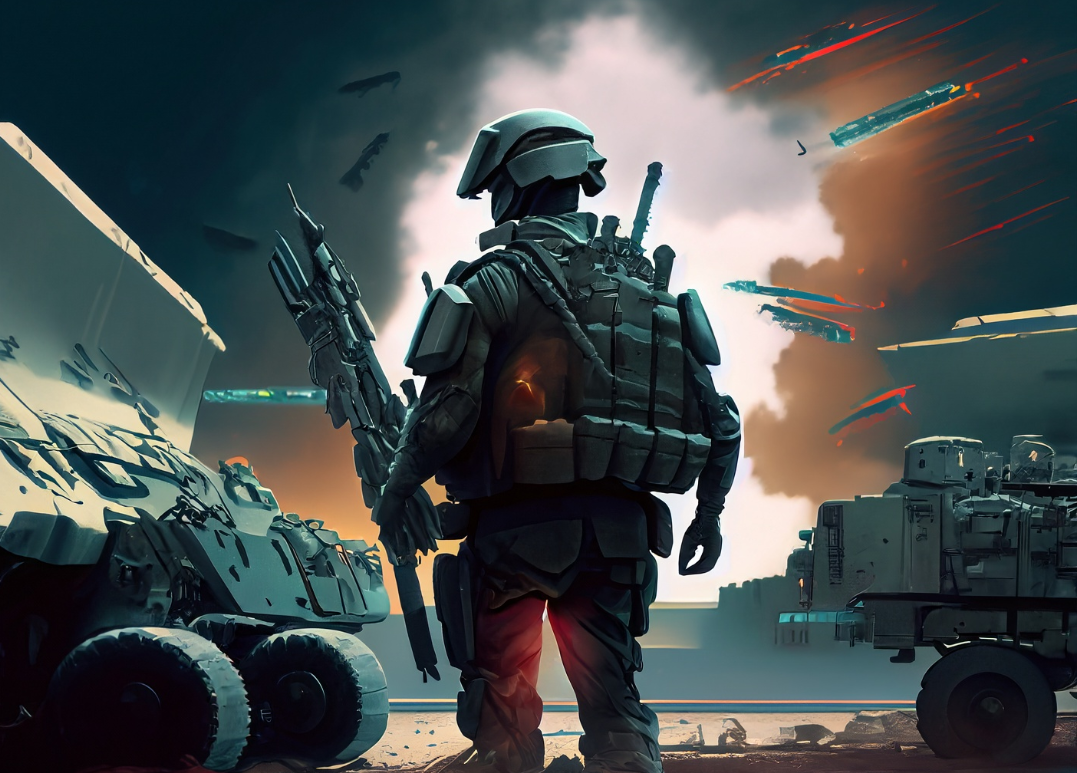Russia vs Ukraine war
In recent months, the world has witnessed the devastating consequences of armed conflicts. One such conflict is the ongoing Russo-Ukrainian War, which escalated dramatically with the Russian invasion of Ukraine. The conflict has claimed tens of thousands of lives. Additionally, it has sparked a humanitarian crisis of unprecedented proportions, with millions of Ukrainians displaced from their homes.
Amidst these harrowing events, it becomes crucial to examine the role of technology, specifically artificial intelligence (AI), in the context of warfare. AI has emerged as a transformative force across various industries, and its applications in military operations have not gone unnoticed. The integration of AI technologies in warfare promises advancements in areas such as autonomous weapons systems, intelligent surveillance, cybersecurity, and more.
….The conflict has claimed tens of thousands of lives. Additionally, it has sparked a humanitarian crisis of unprecedented proportions, with millions of Ukrainians displaced from their homes….
However, the use of AI in warfare presents complex challenges and raises important ethical considerations. The events unfolding in Ukraine serve as a stark reminder of the destructive power of advanced military technologies and the need for responsible and accountable deployment.
AI in Warfare
In this blog post, we will explore the multifaceted landscape of AI in warfare, delving into its practical applications, implications, and ethical questions it poses. From autonomous weapons systems capable of independent decision-making to intelligent surveillance systems that enhance situational awareness, we will examine the ways AI is shaping the future of military operations.

Artificial Intelligence (AI) has emerged as a transformative force in the field of warfare, offering new opportunities and challenges. From autonomous weapons systems to intelligent surveillance and cybersecurity, modern AI technology is reshaping the landscape of military operations. In this blog post, we will explore the various applications of AI in warfare, examining how it enhances military capabilities and the ethical considerations that arise. Let’s delve into the world of AI in warfare and discover its potential impact.
AI Autonomous Weapons Systems in Warfare
Autonomous weapons systems, driven by AI technology, have the potential to revolutionize warfare. These systems can make decisions and take actions independently, without direct human control. Equipped with advanced sensors, machine learning algorithms, and sophisticated targeting capabilities, autonomous weapons can identify targets and analyze situations. They can engage in combat with minimal human intervention, thanks to their ability to make decisions based on the data they collect.
The advantages of autonomous weapons systems lie in their ability to react swiftly and accurately, reducing response times and enhancing precision. They can navigate challenging environments, adapt to changing circumstances, and carry out complex missions with high efficiency. By leveraging AI algorithms, these systems can process vast amounts of data in real-time, allowing for faster and more effective decision-making in combat scenarios.
However, ethical concerns arise regarding the use of autonomous weapons systems. The lack of direct human control raises questions about accountability and the potential for unintended consequences. Ensuring adherence to international laws and regulations, as well as addressing concerns about the ethics of delegating life-and-death decisions to machines, becomes paramount. Striking the right balance between leveraging the advantages of autonomous weapons is crucial. Ensuring human oversight and control is essential to maintain ethical standards in warfare.
Logistics and Supply Chain Optimization
AI can optimize logistics and supply chain management by analysing data, predicting demand, and streamlining operations, ensuring efficient resource allocation in military operations.
Also, In warfare, AI robots can serve as valuable assets in delivering goods to dangerous areas. Equipped with advanced sensors, navigation systems, and AI algorithms, these robots can navigate challenging terrains and hazardous environments with precision and safety.
AI robots can be designed to carry out various logistics tasks, such as transporting supplies, medical equipment, or ammunition to frontline positions or remote locations. They can autonomously assess the best routes, avoid obstacles, and adapt to dynamic situations, ensuring the successful delivery of goods even in high-risk areas.

Combat Simulation
AI-based combat simulation enables realistic training scenarios, allowing military personnel to improve their skills, test strategies, and assess outcomes in virtual environments.
Combat simulation refers to the use of artificial intelligence (AI) in simulating realistic scenarios and warfare situations for training and tactical decision-making purposes. AI brings significant advancements to combat simulation by enhancing realism, adaptability, and scalability.
Here’s a brief explanation of how AI is used in combat simulation:
Realistic Scenario Generation: AI algorithms can generate complex and dynamic scenarios that simulate realistic combat environments. These scenarios incorporate factors such as terrain, weather conditions, and enemy behaviours, providing trainees with immersive and lifelike experiences.
Intelligent Opponent Behaviour: AI-controlled virtual opponents in combat simulations can exhibit intelligent and adaptive behaviors. Machine learning techniques enable these opponents to learn from previous interactions, adjust their strategies, and challenge trainees by mimicking real-world adversaries.
Tactical Decision Support: AI-based systems provide real-time decision support to trainees during combat simulations. These systems analyze vast amounts of data, including sensor inputs and situational information, to provide recommendations for optimal tactical decisions, such as target selection, maneuver planning, and resource allocation.
AI Decision Support Systems in
AI-powered decision support systems leverage advanced data analytics and modelling to assist military leaders in making informed decisions, optimizing resource allocation, and predicting outcomes.
Training and Simulation
AI-based training and simulation systems provide valuable tools for military personnel to enhance their skills and preparedness. These systems create realistic virtual environments that replicate combat scenarios. Soldiers can practice tactical manoeuvres, develop strategies, and improve their decision-making abilities.
By incorporating AI algorithms, training, and simulation systems can adapt to individual training needs, providing personalized experiences and feedback. AI-powered virtual adversaries can simulate real-world situations, challenging military personnel to think critically, develop effective strategies, and enhance their operational readiness.
Furthermore, AI-based training and simulation systems offer cost-effective alternatives to live training exercises. They eliminate the need for extensive resources and reduce risks associated with live-fire training. Additionally, they provide a safe and controlled environment for personnel to learn and develop their skills.

Cybersecurity in AI Warfare
In the digital age, AI plays a crucial role in cybersecurity. AI algorithms can detect and respond to cyber threats in real time, bolstering defence capabilities against evolving cyberattacks.
In the ever-changing landscape of AI in warfare, it is crucial to address ethical considerations. This includes ensuring accountability, maintaining human control, and adhering to international norms and legal frameworks. Striking the right balance between leveraging AI’s capabilities and upholding ethical standards is crucial for responsible and effective military operations. As we dive into the possibilities of AI in warfare, it is vital to acknowledge its impact on military capabilities, decision-making processes, and the broader dynamics of conflicts.
In conclusion, AI is transforming warfare by enhancing military capabilities, optimizing logistics, and supporting decision-making processes. However, ethical considerations and responsible deployment are paramount. The future of AI in warfare lies in harnessing its power while upholding ethical standards and international norms.





